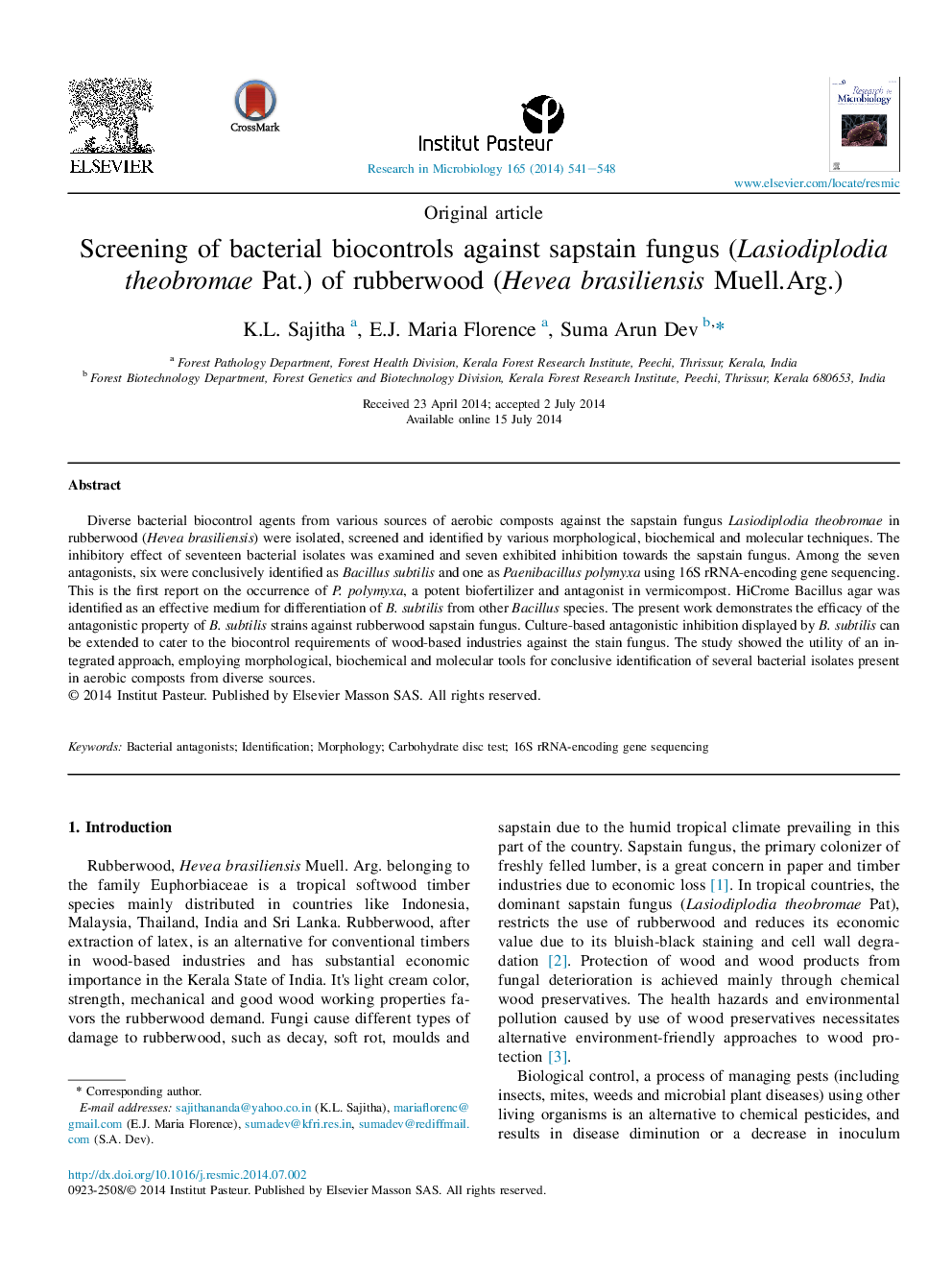| Article ID | Journal | Published Year | Pages | File Type |
|---|---|---|---|---|
| 4358679 | Research in Microbiology | 2014 | 8 Pages |
Diverse bacterial biocontrol agents from various sources of aerobic composts against the sapstain fungus Lasiodiplodia theobromae in rubberwood (Hevea brasiliensis) were isolated, screened and identified by various morphological, biochemical and molecular techniques. The inhibitory effect of seventeen bacterial isolates was examined and seven exhibited inhibition towards the sapstain fungus. Among the seven antagonists, six were conclusively identified as Bacillus subtilis and one as Paenibacillus polymyxa using 16S rRNA-encoding gene sequencing. This is the first report on the occurrence of P. polymyxa, a potent biofertilizer and antagonist in vermicompost. HiCrome Bacillus agar was identified as an effective medium for differentiation of B. subtilis from other Bacillus species. The present work demonstrates the efficacy of the antagonistic property of B. subtilis strains against rubberwood sapstain fungus. Culture-based antagonistic inhibition displayed by B. subtilis can be extended to cater to the biocontrol requirements of wood-based industries against the stain fungus. The study showed the utility of an integrated approach, employing morphological, biochemical and molecular tools for conclusive identification of several bacterial isolates present in aerobic composts from diverse sources.
